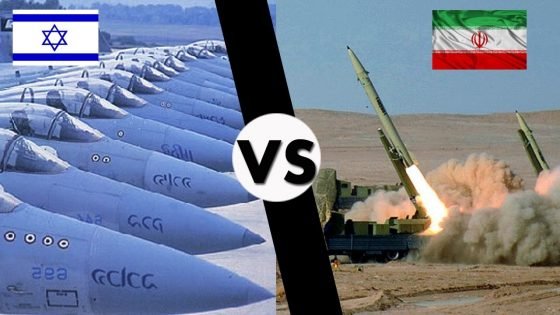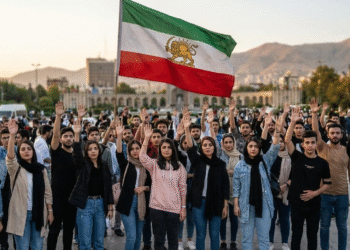“Editor-in-Chief: SHAPOUR-T”
In the dead of night, as air raid sirens wailed across both Tel Aviv and Tehran, the world witnessed a familiar conflict enter a dangerous new phase: a direct confrontation between Iran and Israel. Yet amid the explosions and rhetoric, one recurring pattern stands out—the Islamic Republic of Iran, and its leader Ali Khamenei, following a familiar script: bold threats, hollow bravado, and ultimately, surrender—but only when at their most vulnerable.
Crisis Ignited: Israel Strikes at Iran’s Nuclear Core
In response to mounting nuclear threats from Iran, Israel launched one of its most extensive aerial assaults in history, targeting over 400 sites, including the Natanz and Isfahan nuclear facilities. These strikes not only crippled Iran’s nuclear infrastructure for weeks to come but also killed key military commanders and nuclear scientists—figures who had spent years building what was touted as Iran’s “deterrent power.” That power collapsed in a matter of hours.
Islamic Republic’s Response: Power Projection or Desperate Retaliation?
Islamic Republic’s answer came in the form of mass missile and drone launches—attacks that caused limited damage in Tel Aviv but failed to shift the balance of power. In fact, they only steeled Israel’s resolve to escalate further. Despite Iranian state TV broadcasting celebratory images of people handing out sweets, the reality is stark: Islamic Republic has entered a game it cannot afford to play.
Cancelled Talks: Diplomacy, Squandered Again
Indirect nuclear negotiations between Iran and the U.S.—brokered by Oman and scheduled for Sunday—were abruptly canceled. Once again, Tehran has repeated its historical mistake: refusing diplomacy when relatively strong, only to seek it when cornered. Much like in the past, economic sanctions, internal unrest, and now military strikes have pushed Iran to the brink, and once more, whispers of returning to negotiations are emerging—too late, and from a weakened position.
The Same Old Pattern: Hollow Heroism, Peace in Weakness
The Islamic Republic operates within a vicious cycle:
-
When in a position of relative strength, it succumbs to delusions of grandeur and speaks the language of threats.
-
When met with a serious response, it begins to walk back its stance.
-
And ultimately, it agrees to peace—but only when the cost of war becomes unbearable.
We saw this at the end of the Iran-Iraq War, in the 2015 nuclear deal (JCPOA), and now, again, in its confrontation with Israel. In every case, Khamenei beat the drums of resistance until the very last moment—then retreated.
Fire Reaches Tehran: When Threats Become Real
Israeli Defense Minister’s warning—“If Khamenei continues the attacks, Tehran will burn”—was not empty rhetoric. It reflected a tangible shift in the regional balance of power. Tehran, once the remote command center of proxy wars in Gaza, Lebanon, and Syria, is now firmly within the battlefield itself. If Khamenei thought the red lines were always somewhere else, he now faces the grim reality that the capital of Iran is well within Israel’s line of fire.
Conclusion:
Through delusions of strength and reckless strategy, the Islamic Republic has once again pushed the nation to the edge of catastrophe. And as always, it will likely only seek peace when the price of war becomes unsustainable. Perhaps the time has come for the Iranian people to ask themselves:
Why must we always surrender when we are at our weakest?

 English
English



























































